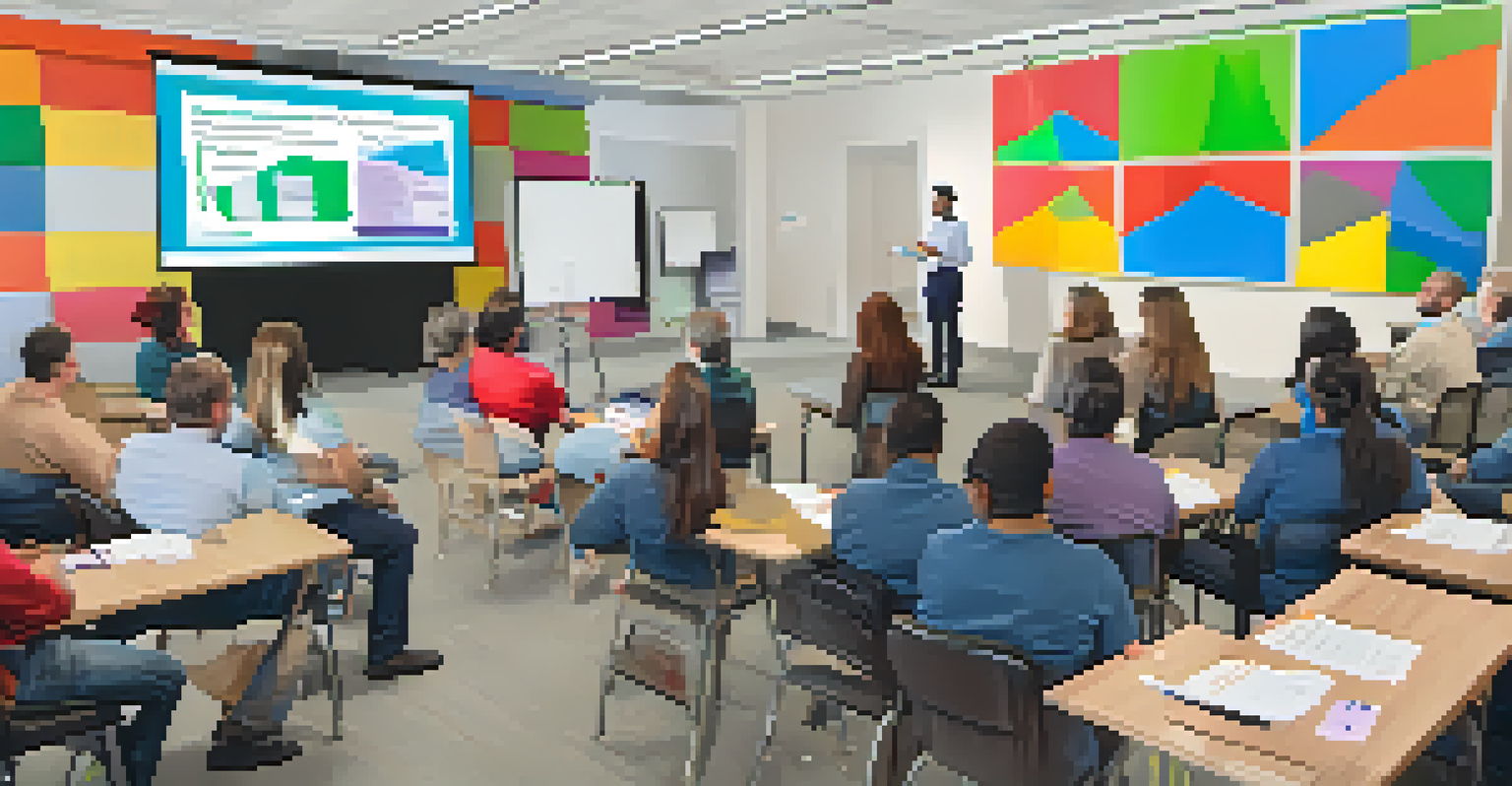How to Create a Return-to-Work Plan for Addicted Employees

Understanding the Importance of a Return-to-Work Plan
A return-to-work plan is essential for employees recovering from addiction. It provides structured support that helps them reintegrate into the workplace. This plan not only aids in their recovery journey but also fosters a healthier work environment for everyone.
The greatest glory in living lies not in never falling, but in rising every time we fall.
Employers have a responsibility to create a supportive atmosphere that acknowledges the challenges of addiction. By implementing such plans, businesses can reduce stigma and increase retention rates among employees. Ultimately, a well-crafted plan benefits both employees and the organization as a whole.
Furthermore, understanding that addiction is a complex issue can help employers approach the situation with empathy. This understanding promotes a culture of support, making it easier for employees to seek help when they need it.
Assessing Employee Needs and Circumstances
Before crafting a return-to-work plan, it’s crucial to assess the individual needs of the employee. Each person's journey through addiction is unique, and understanding their specific circumstances allows for tailored support. This assessment can involve discussions about their treatment progress and any ongoing challenges they may face.

Employers should consider involving HR professionals or therapists to facilitate these discussions. This can provide a neutral space where employees feel safe to share their concerns. Open communication encourages a sense of trust and cooperation in the workplace.
Supportive Plans Aid Recovery
Return-to-work plans provide structured support for employees recovering from addiction, fostering a healthier work environment.
Additionally, acknowledging the employee's previous job performance and skills can help in designing a suitable role for their return. This consideration can boost their confidence and motivation, paving the way for a smoother transition back to work.
Establishing Clear Expectations and Goals
Setting clear expectations is vital for both the employer and the returning employee. This includes outlining job responsibilities, performance standards, and any necessary adjustments to their role. When expectations are communicated effectively, it alleviates anxiety and helps the employee focus on their recovery.
Recovery is not a race. You don’t have to feel guilty if it takes you longer than you thought it would.
Moreover, establishing achievable goals can provide motivation and a sense of accomplishment. These goals can be short-term and gradually increase in complexity as the employee becomes more comfortable in their role. Celebrating these milestones can also reinforce positive behavior.
Regular check-ins to discuss progress towards these goals can create an ongoing dialogue. This helps maintain accountability and allows for adjustments to be made if necessary, ensuring the employee feels supported throughout their journey.
Creating a Supportive Work Environment
A supportive workplace culture is essential for employees returning from addiction. This can involve training staff to understand addiction and the recovery process. Creating awareness can reduce stigma and encourage open conversations about mental health.
Employers can also consider implementing employee assistance programs (EAPs) that provide access to counseling and support services. These resources give employees the opportunity to seek help without fear of judgment. A supportive environment fosters a sense of belonging, which is crucial for recovery.
Flexibility Enhances Employee Well-Being
Implementing flexible work arrangements can significantly aid employees in their recovery process and improve job satisfaction.
Additionally, creating peer support groups within the workplace can further reinforce a sense of community. These groups provide a safe space for employees to share their experiences, challenges, and successes, creating bonds that enhance overall morale.
Implementing Flexible Work Arrangements
Flexibility can be a game-changer for employees returning from addiction. This could mean allowing for modified work hours, remote work options, or reduced workloads during the initial transition phase. Such arrangements can help alleviate stress and support the employee's recovery process.
Employers should have open discussions about what flexible arrangements might work best for the individual. This collaboration can lead to solutions that benefit both the employee and the organization. Flexibility shows that the employer values the employee's well-being, fostering loyalty and commitment.
As the employee progresses in their recovery, regular evaluations of their work arrangement can help ensure continued success. This ongoing support can significantly impact their overall job satisfaction and mental health.
Training Management on Handling Return-to-Work Scenarios
Training management on how to handle return-to-work scenarios is vital for a seamless reintegration process. Managers should be equipped with the skills to support employees who are returning from addiction. This training should include topics such as communication techniques, recognizing signs of relapse, and providing encouragement.
By fostering understanding among managers, organizations can create a more empathetic and supportive environment. This ultimately leads to better employee relations and a more cohesive workplace culture. Managers who are well-trained can effectively guide employees through their transition, reducing anxiety for everyone involved.
Training Management for Empathy
Equipping managers with the skills to support returning employees creates a more empathetic workplace culture and enhances employee relations.
Additionally, ongoing training can help ensure that management stays informed about best practices and resources available for supporting employees. This commitment to learning demonstrates a proactive approach to employee wellness.
Evaluating and Adjusting the Return-to-Work Plan
Evaluating the effectiveness of the return-to-work plan is crucial for its success. Regular assessments can identify what’s working and what might need adjustment. Feedback from the returning employee is invaluable in this process, as it highlights their experiences and any challenges they may face.
Employers should remain open to making changes based on this feedback. Adapting the plan to better suit the individual's needs not only enhances their experience but can also improve overall workplace morale. A flexible approach demonstrates a commitment to employee well-being.

Additionally, tracking the success of the plan through metrics like productivity and attendance can provide insights into its effectiveness. This data can inform future policies and programs, ultimately leading to a stronger support system for all employees.